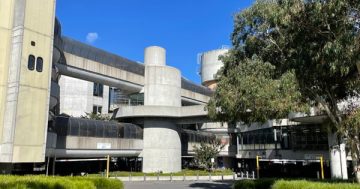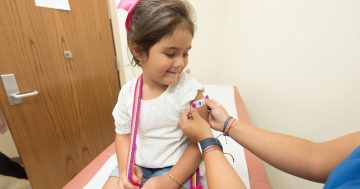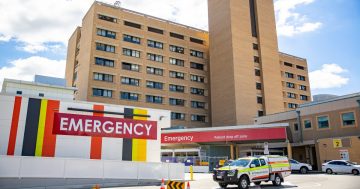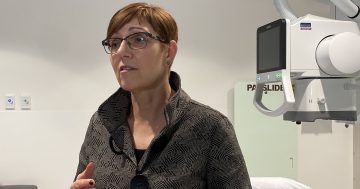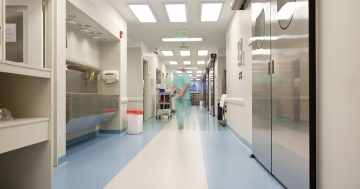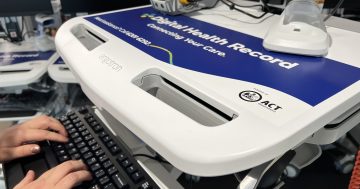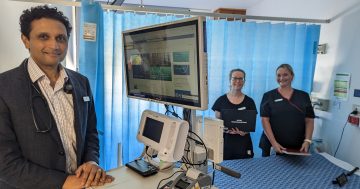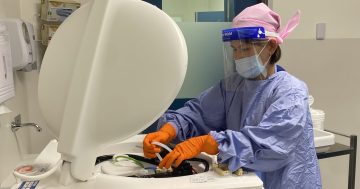
The outpatient wait list program saw less than half of the people it wanted to clear off the books through additional appointments. Photo: File.
The ACT Auditor-General has labelled a program designed to clear outpatient wait lists as “ineffective” in a damning review handed to the government.
Michael Harris’s investigation found Operation Reboot (Outpatients) – announced in July 2020 as part of a $30 million coronavirus catch-up plan – only achieved 43.8 per cent of its target to deliver 14,000 additional specialist outpatient appointments.
His report stated the target was derived from pre-COVID-19 data analysis which didn’t account for the impact of the early public health response to the pandemic, “which was ostensibly the purpose of Operation Reboot”.
“The prioritisation of rapid rollout over forward planning compromised the effectiveness of the implementation of [the program],” Mr Harris said.
“Reboot (Outpatients) was primarily predicated on the provision of additional appointments as the mechanism to address the wait lists, rather than potentially more sustainable measures to improve efficiency.”
Only 6132 additional outpatients were seen, with 585 (9.5 per cent) of people seen by external providers. The rest had their appointments with Canberra Health Services (CHS). This was despite CHS’s “significant effort” trying to engage with external providers.
The program had been allocated $3.5 million by the ACT Government, of which $1,304,592 was actually spent.
This included $192,192 of $500,000 put aside for administrative and nursing costs.
CHS said the rest of the money had been reallocated to other elements of Operation Reboot or the broader COVID-19 public health response.
The initiative ended in June 2021.
The report explained that while a draft Budget Concept brief had been provided, which included a detailed “high-level” approach to its implementation, no project management plan or risk management plan was developed once it had commenced.
This meant CHS was blind to how to effectively manage any risks that could impact the program’s delivery.
“Several known risks, including limited access to clinic space, staffing, and COVID-19 transmissions, ultimately affected the rollout,” the report stated.
Delivery of the additional Reboot (Outpatients) appointments in CHS were managed in accordance with “business-as-usual” processes within each clinical division, with each one nominating targets they wanted met (and three not nominating targets at all).
Only five of the 15 speciality-level targets were met or exceeded. These included the Women, Youth and Children specialities of gynae and colposcopy, gynaecology and physiotherapy and genetics, and the Surgery Division’s urology and orthopaedics specialities.
External providers were needed to deliver the program, although the report noted “significant limitations” in the procurement approach.
This included a lack of documented assessment of expressions of interest, the engagement of providers who did not submit a written expression of interest, and one instance where a provider was engaged without an agreed contract.
“This compromises the integrity of patient service delivery arrangements,” the report stated.
Contracts had been entered into with Top Health Trust and My Emergency Doctor. However, Top Health Trust withdrew its proposal in January 2021 and didn’t see any patients as part of the program.
CHS sent 788 referrals to My Emergency Doctor, with 538 patients marked as seen. A total of $95,310 (GST ex) was paid for its services.
Yarralumla GP Clinic was the third provider engaged to deliver services, despite not submitting an expression of interest and no contract being executed with the business.
It had been approached to collaborate with CHS to see Category 2 and 3 Aboriginal and Torres Strait Islander children waiting to be seen in the CHS Ear, Nose and Throat clinic.
However, only eight bookings were made, with five patients identifying as Aboriginal or Torres Strait Islander. Two of these patients did not arrive for their scheduled appointment.
In the end, 55 patients were removed from wait lists by going to the Yarralumla GP Clinic, which also included dermatology and urology patients. The clinic received $8,930 (GST ex) for its services.
Despite its challenges, the report noted people who had received appointments were “genuinely thankful and appreciative” of the initiative.
“Some patients had started to believe they would never be offered any sort of treatment or that their referral had been completely lost,” it stated.
The Auditor-General recommended CHS should ensure the lessons learned from the program inform future emergency response scenarios, which he said should include creating short checklists and templates to support the development of risk management plans and “effective implementation” in short timeframes.
Mr Harris also recommended CHS should review its procurement practices to ensure consistent treatment of all prospective suppliers, rigorous evaluation of responses and detailed record-keeping.
CHS was contacted for comment.












